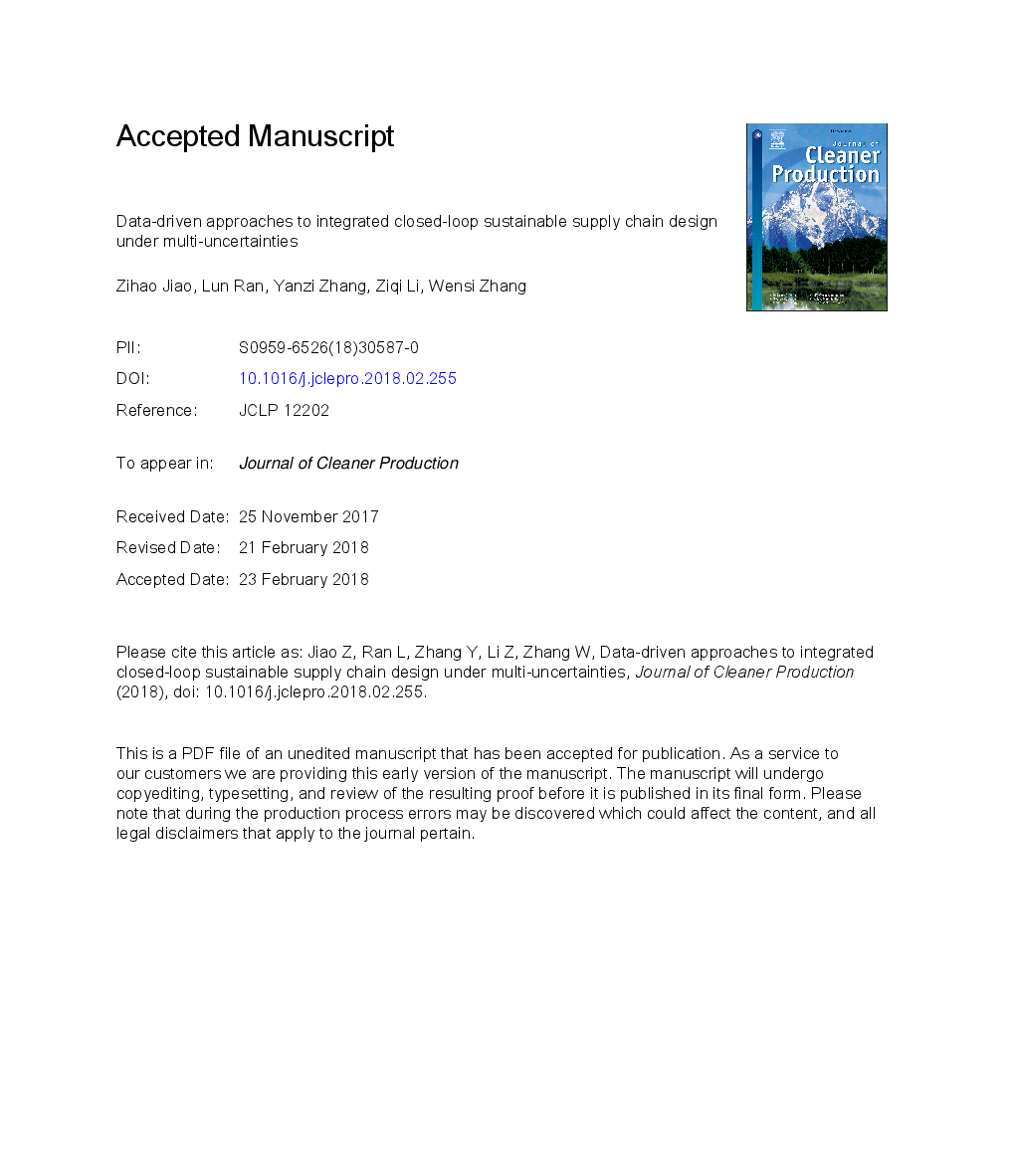ترجمه فارسی عنوان مقاله
رویکرد داده ها به طراحی یکپارچه زنجیره تامین پایدار یکپارچه بسته با چندین عدم اطمینان
عنوان انگلیسی
Data-driven approaches to integrated closed-loop sustainable supply chain design under multi-uncertainties
| کد مقاله | سال انتشار | تعداد صفحات مقاله انگلیسی |
|---|---|---|
| 149608 | 2018 | 46 صفحه PDF |
منبع

Publisher : Elsevier - Science Direct (الزویر - ساینس دایرکت)
Journal : Journal of Cleaner Production, Volume 185, 1 June 2018, Pages 105-127
ترجمه کلمات کلیدی
زنجیره تامین پایدار، بهینه سازی قوی، زنجیره تامین حلقه بسته، رویکرد مبتنی بر داده ها،
کلمات کلیدی انگلیسی
sustainable supply chain; Robust optimization; Closed-loop supply chain; Data-driven approaches;

